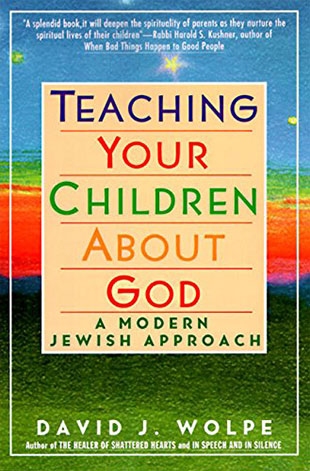"Listening to children's questions, finding out what they are really asking, and inviting them to address it themselves are three steps that can help draw out their own ideas. All too often we are so intent on proving our own worthiness as parents and guides that we jump in with answers. We do not want to be thought of as less than omniscient.
"The fear that we will be found less than knowledgeable leads us into mistakes. How many times have we told a child something incorrect because we were afraid of not knowing the answer? We would have been better off listening to the question, understanding it well, and asking for the child's theories. A teacher's role is not solely to provide answers. Often it is more important to understand the question and the questioner. As with Jeremy asking about Moses and his speech impediment, the question is often about something other than what it appears at first. Jeremy was asking so that I would understand him better.
"We do no encourage questions by always knowing the 'correct' response. As the Talmud reminds us, each person should teach his tongue to say 'I don't know.'
We not only want to ask our children questions to understand their perspective; we want to encourage them to ask questions of others as well. The Nobel Prize-winning physicist I. I. Rabi once told an interviewer that his most important intellectual influence was his mother. Each day when Rabi came home from school, his mother would say to him, 'Isaac, did you ask any good questions today?' From that, said Rabi, he learned that the key to life was to ask good questions.
"Encouraging children to ask questions, seeking to understand their worldview, trying to catch their wonder for the world — these can help in our quest for God and can help better train our kids to look for God in their lives.
"What we catch from our kids? The recognition that hope is an act of piety, not of gullibility. A renewed realization that each moment is a once-in-a-lifetime opportunity, and that as adults we can fine-tune that realization with a tradition that heightens our gratitude for the world.
"We can also learn to see the world as 'normal mystics' by seeing it though the eyes of our children. We can find out their worldview by encouraging questions and seeking to see the world in their special way.
"Most important, we must never let ourselves, or our children, forget that we all in God's image. That is the basis for all that follows. If we teach that they are but accidents of chemistry, or very clever animals, we cannot bring them a sense of sanctity and infinite worth. No matter how bad a child may feel, the parent can tell her that if God made her, she must have both a purpose and a capacity to be good and important. To be human is a glorious destiny.
For there to be a sense of 'significant being,' wrote Heschel, one needs three things: a God, a soul, and a moment. And all three are always present."
